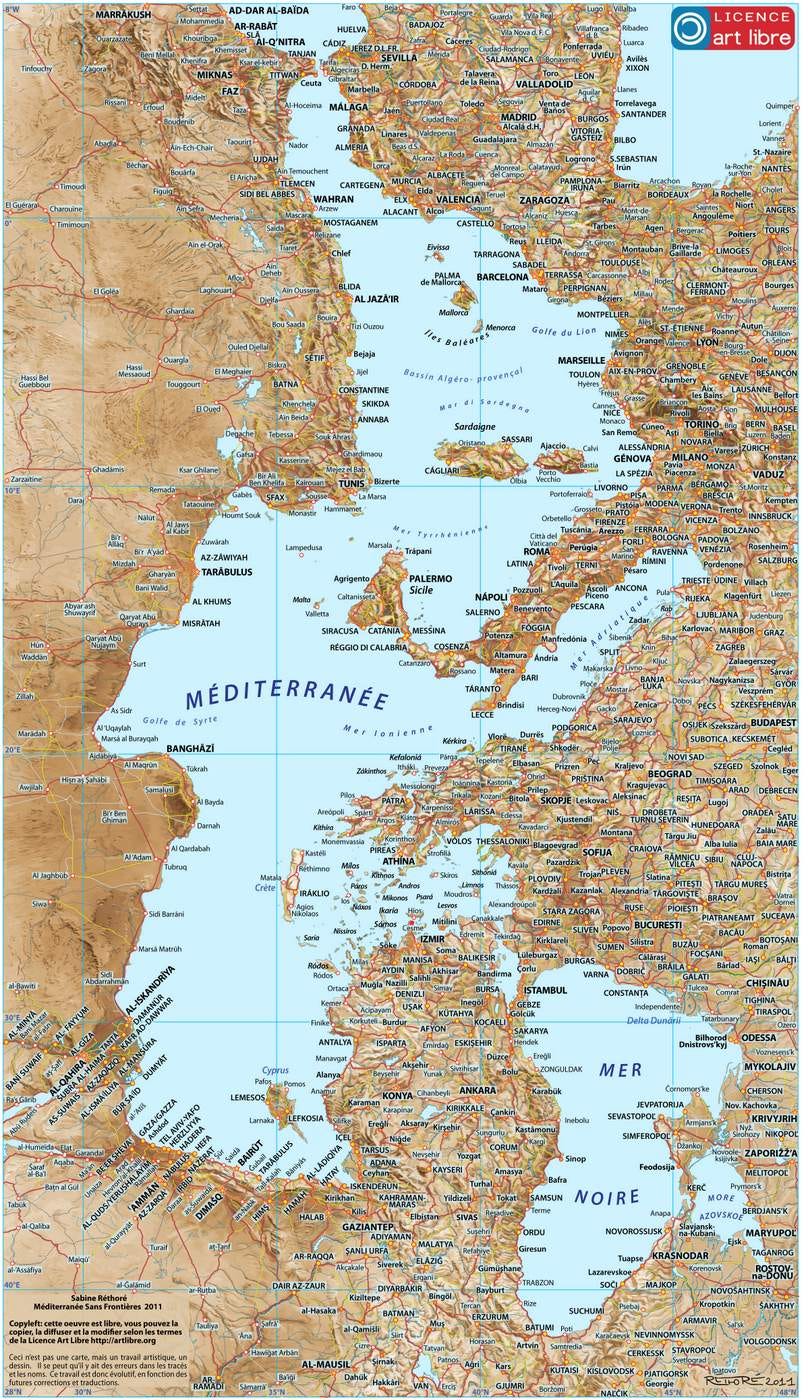Hello! This is Everything Is Amazing, a science-adjacent newsletter about macho pinks, poisonous greens and other colourful absurdities (for example, much of ancient history).
An occupational hazard of writing this newsletter, and I guess of being a student in general, is that everything turns into a loose thread you can’t resist tugging on. Ever since I wrote about the rich historical tradition for maps that didn’t point north…
…I’ve become easily bewitchable by every example of them that appears in front of me.
Take this dramatic reimagining of the Mediterranean by artist Sabine Réthoré:
(When I finally get a copy of this for my wall, I’m going to stand in front of it transfixed for hours. Can’t wait.)
For this reason, it was really fun to see Randall Munroe of xkcd fame answer the important question, “Hey, what if someone turned all the continents ninety degrees?”
Some of my favourite takeaways here:
The Greenwich Meridian becomes our new Equator…
London becomes a steamy jungle, because it’s now roughly on the same latitude as Borneo & Sumatra…
Antarctica reverts to the state it was in around 34 million years ago: ice-free, covered with forests and teeming with life…
Costa Rica is now the new Antarctica (with apologies to my other half)…
Japan and China are, in climate terms, more or less unchanged. Alas, the same cannot be said for India - that’s it, squished all over the North Pole.
Ridiculous, yes, but a good workout for the imagination.
Staying with random videos: a while back I made a pact with myself to keep reposting, about once a year, this footage of Olivia Colman reading out a gem of a 400-year-old letter from a wife to her husband- and if you’ve never seen it before and are about to do so, I’m so envious that I might hate you a little bit:
Okay!
In today’s audio essay for paid subscribers, a little later than I’d planned (please forgive me, it’s been that sort of week), I’m following on from a paragraph in this story of a man frozen in time:
“Consider your sense of passing time for a second - that feeling you have (without consulting your watch or the clock on your phone) of roughly how long it’s been since this or that occurred. Sure, if you’re twiddling your thumbs in a bored sort of way, that time will crawl. If you’re having fun, it’ll fly by - and it does seem like it speeds up as we age, which may be down to the novelty of our experiences (the more commonplace the action, the more your working memory will tend to blur all instances of it together and skim your awareness over them, a bit like how Troxler’s Fading suggests how our minds keep our thoughts uncluttered by constantly tuning out the overfamiliar)…
But sensing just a few minutes? Nah. Piece of cake.”
Here’s the thing that haunts me about this awareness of the flow of time. Can we control any of it? Do we have any agency over the speed that our lives seem to pass - and as we get older, is there anything we can do to counteract that apparent acceleration of our experience of the time we have left?
Amazingly, it seems there might be.



